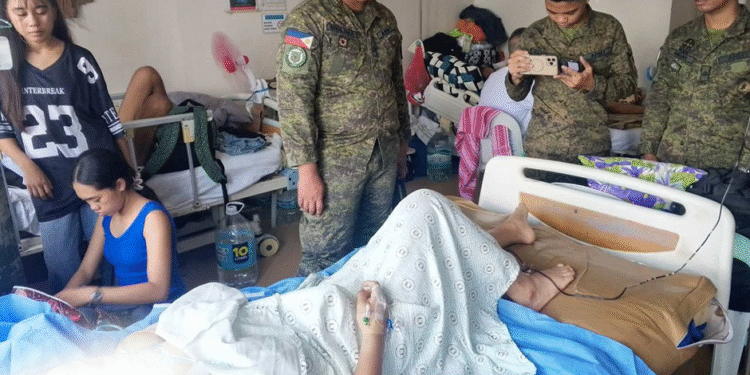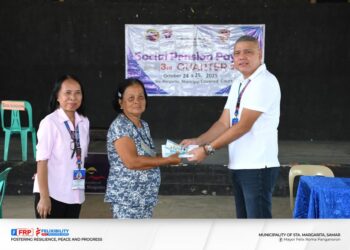Paranas, Samar (September 18, 2025) — Gunfire may have marked the clash in this town — but what followed was a story not of revenge, but of rescue and respect for life.
After a series of encounters between government troops and armed members of the Communist insurgency on September 13, soldiers from the Philippine Army’s 8th Infantry Division (8ID) found themselves face to face with two wounded enemies. One had died in the firefight. The other was bleeding, injured, and defeated.
But instead of leaving the wounded man behind — or treating him as a mere enemy — the soldiers chose to help.
Medics quickly moved in, providing first aid and carrying the injured man to safety. He was brought to a nearby medical facility for treatment — the same care given to any wounded Filipino in need.
For the fallen rebel, who died in the clash, the soldiers did not stop at recovering the body. They worked with the local government of Paranas to ensure a proper, respectful burial. No photos for propaganda, no triumphalism — just quiet dignity.

To many, these actions may seem unexpected in the context of war. But for Major General Adonis Ariel Orio, commander of the 8ID, this is exactly what being a soldier is about.
“Our soldiers are trained not only to fight, but to protect life — even the lives of those who once stood against us,” he said. “This is how we show professionalism. This is how we honor our duty to humanity.”
It’s a perspective that is sometimes overlooked in the narrative of conflict — that the military, even in combat, is bound by principles that transcend the battlefield. International Humanitarian Law, after all, does not distinguish between friend and foe when it comes to dignity and care.
Colonel Arlino L. Sendaydiego, commander of the 801st Infantry Brigade, added that the soldiers’ conduct reflects their commitment to peace, even as they continue their operations in the area.
“We are determined to protect the people of Paranas and end the threat of insurgency,” he said. “But we also want to give every remaining fighter a chance to return home and start anew.”
Through the government’s Enhanced Comprehensive Local Integration Program (E-CLIP), those who surrender are given support — livelihood assistance, training, and help reintegrating into society. It’s a second chance, not just for individuals, but for communities torn by decades of armed struggle.
Now, as the smoke clears in Paranas, what lingers is not just the memory of gunfire — but a reminder that even in conflict, humanity can win.
And sometimes, the strongest message a soldier can send isn’t through force — but through mercy. (via Ricky Bautista)










